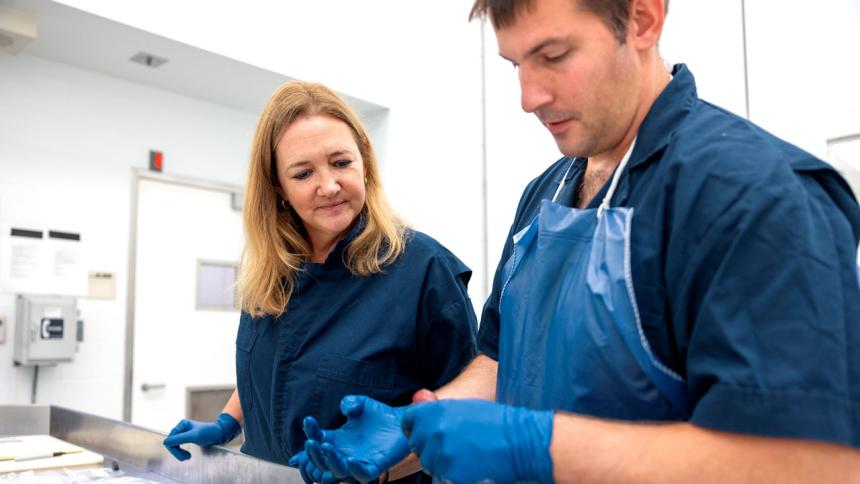In the News

Blog
December 01, 2023
There are times in life where things don’t go as expected, including on June 13, 2023, when I showed up for the first day of my project at SANCCOB, the Southern African Foundation for the Conservation of Coastal Birds, as part of Cornell’s Expanding Horizons Program....

November 30, 2023
Dr. Cynthia Hopf-Dennis from the Janet L. Swanson Wildlife Hospital at Cornell University discusses her path to teaching and practicing wildlife medicine and population health to preserve the health and well-being of our native wild animals while educating others about their value.

Blog
November 28, 2023
Cornell veterinary student Sergio Acuna Gutierrez traveled to Guadalajara, Jalisco in Mexico for ten weeks to work at the Zoológico Guadalajara. Home to over 3,500 animals from over 300 different species and built on a reserve at the edge of the Huentitan Canyon, Zoológico Guadalajara is one of the largest zoos in all of Latin America.

For Your Information
November 27, 2023
This study led by Cornell researchers provides an overview of important toxicants to which honey bees are exposed; behavioral, husbandry, and external environmental factors influencing exposure; impacts of toxicant exposure on individual bee and colony health; and the convergent impacts of stress, nutrition, infectious disease, and toxicant exposures on colony health.
Video
November 25, 2023
A presentation by Dr. Steve Osofsky, Director of the Cornell Wildlife Health Center, at the National Academy of Sciences Board on Animal Health Sciences, Conservation, and Research Fall Board Meeting, Washington, D.C.

November 22, 2023
State agencies are stepping up education and outreach to promote voluntary adoption of non-lead alternatives, acting on recommendations from their Lead Ammunition Working Group, a multidisciplinary partnership that includes the Cornell Wildlife Health Lab.

November 21, 2023
Did you know that the second most common cause of injured sloths coming into rescue centers is electrocution? If not, you are in the majority. There is little to no literature about sloth electrocution in the academic world, even though it is such a pervasive problem.

November 17, 2023
While avian influenza has affected multiple bird populations and a range of mammal species across the world, the Cornell Janet L. Swanson Wildlife Hospital has optimized its use of clinical medicine, practical precautions, and collaboration to effectively manage the risk of disease transmission among birds in the hospital, and from birds to mammals, including humans.

November 15, 2023
Led by Cornell's Dr. Karyn Bischoff, an analysis of beeswax in managed honeybee hives in New York finds a wide variety of insecticide, herbicide and fungicide residues, exposing current and future generations of bees to long-term toxicity.

Video
November 08, 2023
Enjoy these beautiful wild elephants in Chobe National Park, Botswana - part of the KAZA (Kavango Zambezi) Transfrontier Conservation Area - where we're working to restore key wildlife migration corridors.
